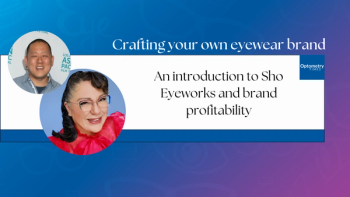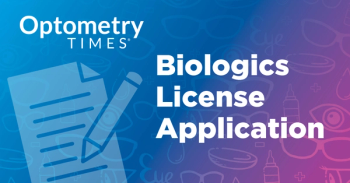
Deciding on Birmingham as site of ADA, Genentech's diabetic eye disease manuscript
Bryan Wilson, executive director of medical affairs at Genentech, details why Birmingham, Alabama was chosen as the community to study the effects of diabetic eye disease among African Americans in a new manuscript from the ADA and Genentech.
A recent manuscript published in The American Journal of Accountable Care works to investigate and overview the disproportionate risk that African American Alabamians have in developing diabetes, as well as identify the 4 main pillars of barriers that keeps this population from accessing eye care. Bryan Wilson, PhD, MBA, executive director medical affairs at Genentech, details the decision behind choosing Birmingham, Alabama as the site of the manuscript and what this means for future research.
Learn more about the details of the manuscript
Video transcript
Editor's note - This transcript has been edited for clarity.
Bryan Wilson, PhD, MBA:
So the ADA and the Genentech community, we've been on the grounda nd we've been working so hard. Just to give you a flavor of the impact we've had over last year, so we've actually held over 51 eye screening events across the Alabama community and we've had over 85 community activations. The Open Your Eyes campaign was 1 of the largest that was associated with the Magic City Classic, which is an annual football event that happens in Birmingham every year. We reached over 4000 community members. And so it gets to the point that I made earlier: we're in the community and we want to co-create with the community, so that 4000 member community engagement shows our commitment to that. It shows that we are co-creating with the community mind in mind, as I like to say, and it's just been a real pleasure to see the impact and seeing folks become activated around diabetic eye health.
Kaiser Maharjan:
Was the location of the optometry school at (University of Alabama at Birmingham, or) UAB part of the decision to put the study in Birmingham?
Wilson:
It wasn't an initial deciding factor. It was actually a plus that it's there. Yes, we want partners, both academically and within the clinical community, and we were blessed to have that within Birmingham. So yes, having an optometry school there, having passionate people on the grounds, like I mentioned, a few like Janene Sims, Edmund Arthur, these individuals are passionate, they're there, they're doing the work. And so yes, it's not a key selection criteria but it is a bonus and it is a plus, that we can co-create with these creative individuals. So it's just been great working with them. Both of them were involved in our Diabetic Eye summit and both have been heavily involved in some of the work and strategies that we've been co-creating. In addition to primary care physicians, internal medicine physicians like Andrew Sherrington, who have been instrumental in the implementation of our quality improvement work and some of our local evidence generation activities to truly understand health system barriers. Because yes, there's a community component, but there's also a health system component that also plays a big role in sustaining the work. And so it's been great to work with all of them.
Kaiser Maharjan:
Is part of how you decided on Birmingham, does that have anything to do with its history of the city?
Wilson:
Yes, so the city of Birmingham is just a magical place and a place of opportunity. But it's also a place where the civil rights movement had significant headwinds in the 1960s and earlier than that, even. And so what that means is that because Birmingham was such a pillar in the civil rights movement, it really allows for an opportunity for the reshaping of how we think about civil rights and what that means for people and people having access to good health, access to economic development, access to the American dream, if you think about it. When I think about what that means and how we fast forward now to 2024 and how we're implementing innovative health measures, implementing health partnerships like this with the ADA and Genentech, I couldn't be more pleased. And it's definitely aligned with the spirit of the Birmingham community to change the paradigm of how things are with the understanding that because that's the way things are (and with respect to diabetes, with the high rates of diabetes in Alabama,) it doesn't have to stay like that, not just in Alabama or Birmingham, that that's something that we can do together to change things. And so for me, as an African American male supporting this work, that's really important that I remember that whatever I see, we have the power to change, but we have to also work with the community to co-create real-life, honest, and relevant strategies with the community in mind. And so I'm really excited to be able to support this. I'm really excited about the ADA and Genentech partnership, and I'm really even more excited about what this can mean for the Alabama community and beyond.
Newsletter
Want more insights like this? Subscribe to Optometry Times and get clinical pearls and practice tips delivered straight to your inbox.













































